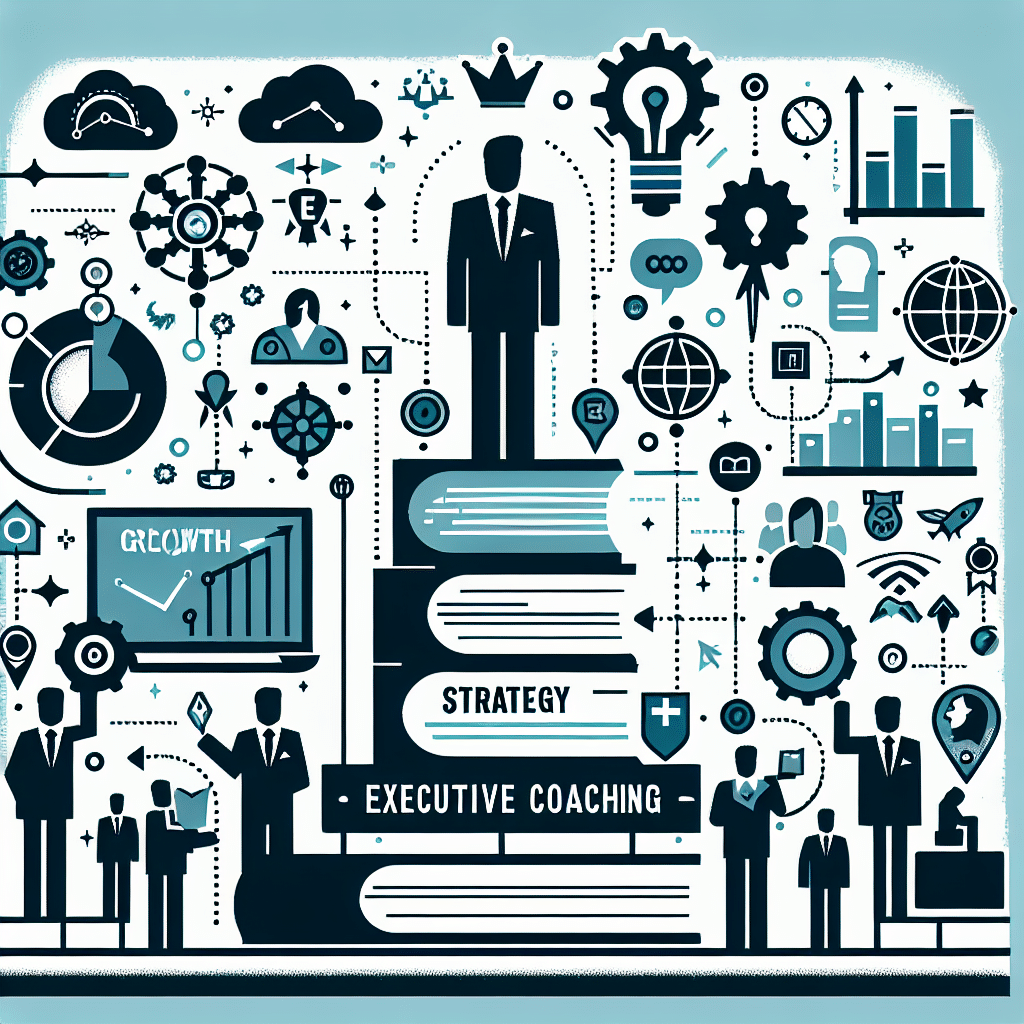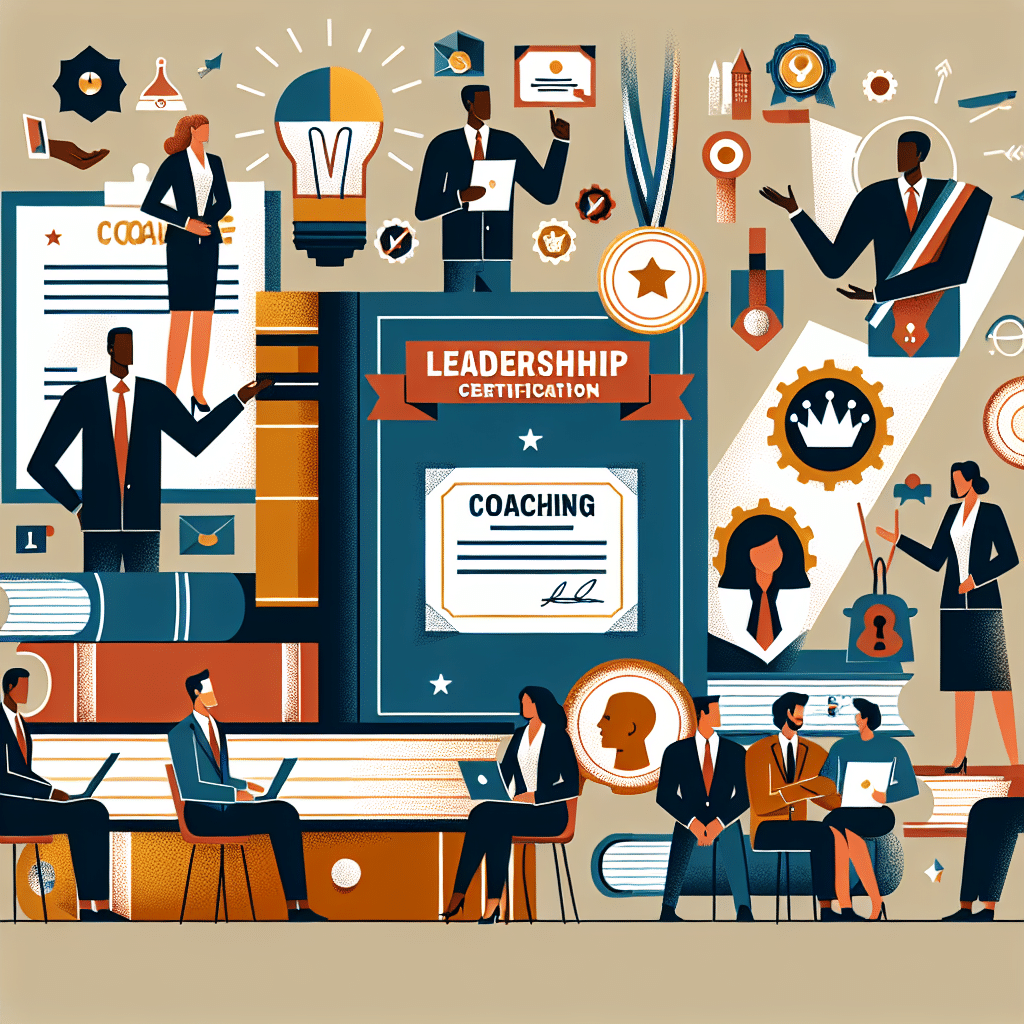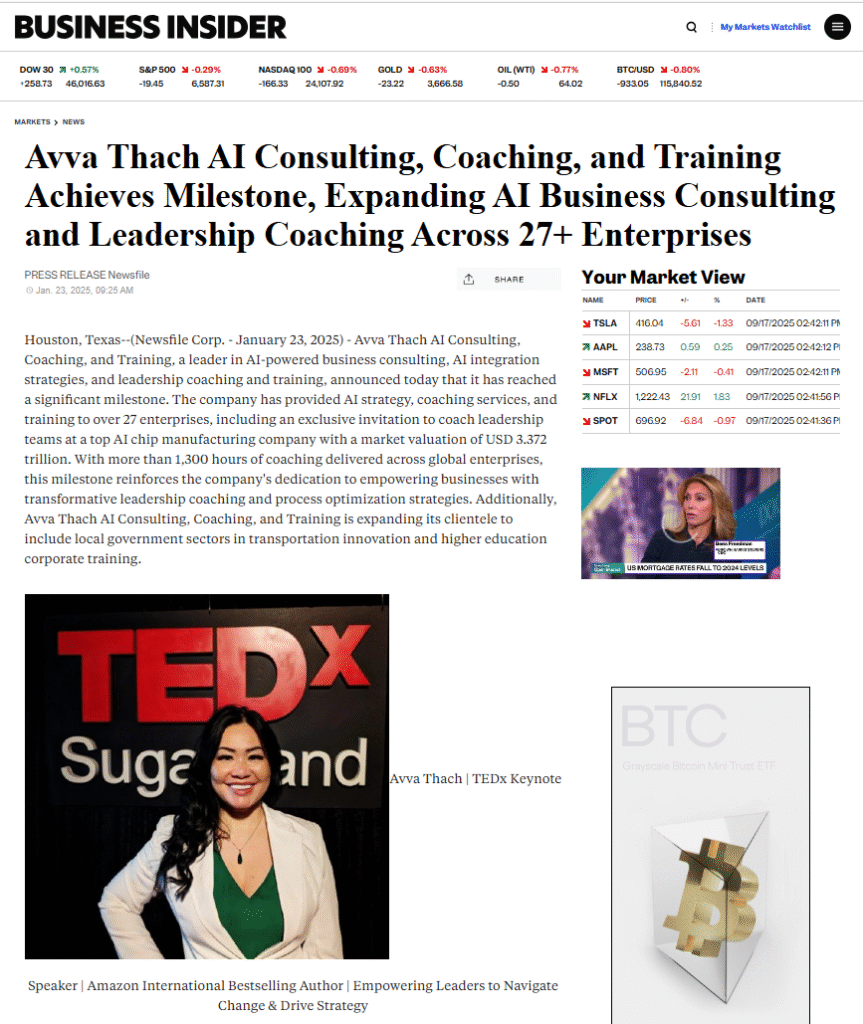In today’s fast-paced and ever-evolving business landscape, the role of business and executive coaching has become increasingly vital. Coaching serves as a catalyst for personal and professional growth, enabling leaders to navigate complex challenges and enhance their effectiveness. It provides a structured framework for leaders to reflect on their experiences, identify areas for improvement, and develop actionable strategies to achieve their goals.
By fostering a culture of continuous learning, coaching empowers executives to adapt to change, innovate, and drive organizational success. Moreover, executive coaching is not merely about addressing weaknesses; it is also about amplifying strengths. Coaches work collaboratively with leaders to uncover their unique talents and leverage them for maximum impact.
This dual focus on growth and development ensures that leaders are not only equipped to tackle immediate challenges but are also prepared for future opportunities. As organizations strive for excellence, the integration of coaching into leadership development programs becomes essential for cultivating a resilient and agile leadership team.
Key Takeaways
- Business and executive coaching plays a crucial role in developing leadership skills and driving organizational success.
- Identifying leadership strengths and weaknesses is essential for personal and professional growth.
- Setting clear and measurable leadership goals helps in tracking progress and staying focused on achieving desired outcomes.
- Developing effective communication and interpersonal skills is key to building strong relationships and leading teams effectively.
- Cultivating emotional intelligence and self-awareness is vital for making informed decisions and managing relationships in the workplace.
Identifying Leadership Strengths and Weaknesses
A critical step in the coaching process is the identification of leadership strengths and weaknesses.
Through various assessment tools, feedback mechanisms, and reflective practices, leaders can gain insights into their leadership styles, decision-making processes, and interpersonal dynamics.
Recognizing these attributes enables leaders to capitalize on their strengths while addressing areas that require improvement. Furthermore, understanding one’s weaknesses is not a sign of failure but rather an opportunity for growth. Coaches guide leaders in reframing their perceptions of weaknesses as developmental areas that can be enhanced through targeted strategies.
By fostering a growth mindset, leaders can approach challenges with resilience and a willingness to learn. This process not only enhances individual performance but also contributes to a more cohesive and effective leadership team that is better equipped to drive organizational success.
Setting Clear and Measurable Leadership Goals

Once strengths and weaknesses have been identified, the next step in the coaching journey involves setting clear and measurable leadership goals. Goal-setting is a powerful tool that provides direction and focus, enabling leaders to align their efforts with organizational objectives. Effective goals are specific, measurable, achievable, relevant, and time-bound (SMART), ensuring that leaders have a clear roadmap for their development journey.
By establishing concrete goals, leaders can track their progress and celebrate milestones along the way. In addition to individual goals, it is essential for leaders to align their objectives with the broader vision of the organization. This alignment fosters a sense of purpose and accountability, motivating leaders to strive for excellence in their roles.
Coaches play a crucial role in facilitating this alignment by helping leaders articulate their goals in a way that resonates with the organization’s mission and values. As leaders work towards these goals, they not only enhance their own capabilities but also contribute to the overall success of the organization.
Developing Effective Communication and Interpersonal Skills
| Metrics | Results |
|---|---|
| Number of communication workshops attended | 10 |
| Feedback received from colleagues | Positive |
| Improvement in active listening skills | 20% |
| Number of successful conflict resolutions | 15 |
Effective communication is a cornerstone of successful leadership. Leaders must be able to convey their vision, inspire their teams, and foster collaboration across diverse groups. Coaching provides leaders with the tools and techniques necessary to enhance their communication skills, enabling them to articulate their ideas clearly and persuasively.
Through role-playing exercises, feedback sessions, and active listening practices, leaders can refine their communication styles to better connect with their teams. Interpersonal skills are equally important in building strong relationships within an organization. Leaders who possess strong interpersonal skills are better equipped to navigate complex social dynamics, resolve conflicts, and foster a positive work environment.
Coaches help leaders develop empathy, active listening skills, and emotional intelligence—key components of effective interpersonal communication. By cultivating these skills, leaders can create an inclusive culture where team members feel valued and empowered to contribute their best work.
Cultivating Emotional Intelligence and Self-Awareness
Emotional intelligence (EI) is a critical attribute for effective leadership. It encompasses the ability to recognize and manage one’s emotions as well as the emotions of others. Leaders with high emotional intelligence are better equipped to navigate challenging situations, build strong relationships, and inspire trust among their teams.
Coaching plays a pivotal role in helping leaders cultivate emotional intelligence by providing them with tools to enhance self-awareness and emotional regulation. Self-awareness is the foundation of emotional intelligence; it allows leaders to understand how their emotions influence their behavior and decision-making. Coaches encourage leaders to engage in reflective practices that promote self-discovery and insight.
By developing a deeper understanding of their emotional triggers and responses, leaders can make more informed choices that align with their values and objectives. This heightened self-awareness not only enhances individual performance but also fosters a culture of emotional intelligence within the organization.
Implementing Strategic Decision-Making and Problem-Solving Techniques

Strategic decision-making is a hallmark of effective leadership. Leaders must be able to analyze complex situations, weigh options, and make informed choices that drive organizational success. Coaching equips leaders with strategic decision-making frameworks that enable them to approach challenges systematically.
By employing techniques such as SWOT analysis, scenario planning, and risk assessment, leaders can make decisions that are grounded in data and aligned with organizational goals. In addition to decision-making frameworks, coaches also emphasize the importance of problem-solving techniques. Leaders often face multifaceted challenges that require innovative solutions.
Coaches guide leaders in developing creative problem-solving skills by encouraging them to think outside the box and explore alternative perspectives. This approach not only enhances individual decision-making capabilities but also fosters a culture of innovation within the organization.
Building and Leading High-Performing Teams
The ability to build and lead high-performing teams is a defining characteristic of successful leaders. Coaches work with leaders to develop strategies for team building that emphasize collaboration, trust, and accountability. High-performing teams are characterized by clear roles, open communication, and a shared commitment to achieving common goals.
Coaches help leaders create an environment where team members feel empowered to contribute their unique skills and perspectives. Moreover, effective team leadership involves recognizing and leveraging the diverse strengths of team members. Coaches encourage leaders to adopt a strengths-based approach that focuses on identifying individual talents and aligning them with team objectives.
By fostering a culture of appreciation for diversity, leaders can create cohesive teams that are better equipped to tackle challenges and drive innovation.
Managing Conflict and Navigating Organizational Politics
Conflict is an inevitable part of organizational life; how leaders manage conflict can significantly impact team dynamics and overall performance. Coaching provides leaders with conflict resolution strategies that emphasize open communication, active listening, and collaborative problem-solving. By equipping leaders with these skills, coaches empower them to address conflicts constructively rather than allowing them to escalate.
Navigating organizational politics is another critical aspect of effective leadership. Leaders must be adept at understanding power dynamics within their organizations while maintaining integrity and transparency. Coaches help leaders develop political acumen by encouraging them to build relationships across different levels of the organization and understand the motivations of various stakeholders.
This awareness enables leaders to navigate complex situations with confidence while fostering a culture of collaboration.
Leveraging Feedback and Continuous Improvement
Feedback is an essential component of leadership development; it provides valuable insights into performance and areas for growth. Coaches emphasize the importance of seeking feedback from peers, team members, and supervisors as part of a continuous improvement process. By creating an environment where feedback is welcomed and valued, leaders can foster a culture of learning within their organizations.
Continuous improvement is not just about addressing weaknesses; it also involves recognizing successes and building on them. Coaches guide leaders in developing reflective practices that encourage them to celebrate achievements while identifying opportunities for further growth. This commitment to continuous improvement ensures that leaders remain adaptable in an ever-changing business landscape.
Balancing Work and Life Responsibilities as a Leader
Leadership often comes with significant demands on time and energy; therefore, finding balance between work responsibilities and personal life is crucial for long-term success. Coaches assist leaders in developing strategies for time management, prioritization, and self-care that promote overall well-being. By encouraging leaders to set boundaries and allocate time for personal interests outside of work, coaches help prevent burnout and enhance overall effectiveness.
Moreover, achieving work-life balance is not just beneficial for individual leaders; it also sets a positive example for team members. When leaders prioritize self-care and well-being, they create a culture that values work-life balance across the organization. This cultural shift can lead to increased employee satisfaction, engagement, and retention—ultimately contributing to organizational success.
Sustaining Leadership Growth and Development
Leadership development is an ongoing journey rather than a destination; sustaining growth requires commitment from both leaders and organizations alike. Coaches play a vital role in helping leaders establish lifelong learning habits that promote continuous development. By encouraging leaders to seek out new experiences, pursue professional development opportunities, and engage in reflective practices, coaches ensure that growth remains a priority throughout their careers.
Organizations also have a responsibility to support leadership development initiatives by providing resources such as training programs, mentorship opportunities, and access to coaching services. By fostering an environment that values growth and development at all levels of the organization, companies can cultivate a pipeline of capable leaders who are prepared to navigate future challenges successfully. In conclusion, business and executive coaching serves as a powerful tool for enhancing leadership effectiveness across various dimensions—from self-awareness to team building to conflict management.
By investing in coaching initiatives that focus on these critical areas, organizations can empower their leaders to thrive in an increasingly complex business environment while driving sustainable success for themselves and their teams.
In the realm of business and executive coaching, understanding the nuances between different forms of training is crucial for effective leadership development. A valuable resource on this topic is the article titled “Leadership Development vs. Management Training: What’s the Real Difference?” which explores the distinctions and overlaps between these two essential areas. You can read more about it [here](https://iavva.ai/2025/09/10/leadership-development-vs-management-training-whats-the-real-difference/). This article provides insights that can help organizations tailor their coaching programs to better meet the needs of their leaders.
FAQs
What is business and executive coaching?
Business and executive coaching is a professional service that helps individuals, typically business leaders and executives, improve their performance and achieve their professional goals. Coaches work with clients to identify areas for improvement, set goals, and develop strategies to enhance their leadership and management skills.
What are the benefits of business and executive coaching?
Business and executive coaching can provide numerous benefits, including improved leadership and communication skills, enhanced decision-making abilities, increased self-awareness, and better work-life balance. It can also help individuals navigate organizational challenges, develop a strategic vision, and achieve greater success in their careers.
How does business and executive coaching differ from other forms of coaching?
Business and executive coaching is specifically tailored to the needs of professionals in leadership and management roles. It focuses on addressing challenges and opportunities unique to the business world, such as strategic planning, organizational development, and team management. Other forms of coaching, such as life coaching or career coaching, may have a broader focus on personal development or career advancement.
What qualifications should a business and executive coach have?
A reputable business and executive coach should have relevant training and certification from a recognized coaching organization, such as the International Coach Federation (ICF). They should also have experience working with business leaders and executives, as well as a deep understanding of organizational dynamics and leadership principles.
How long does business and executive coaching typically last?
The duration of business and executive coaching can vary depending on the specific needs and goals of the client. Some coaching engagements may last for a few months, while others could extend over a year or more. The frequency and duration of coaching sessions are typically determined based on the individual’s objectives and progress.






















Leave a Reply